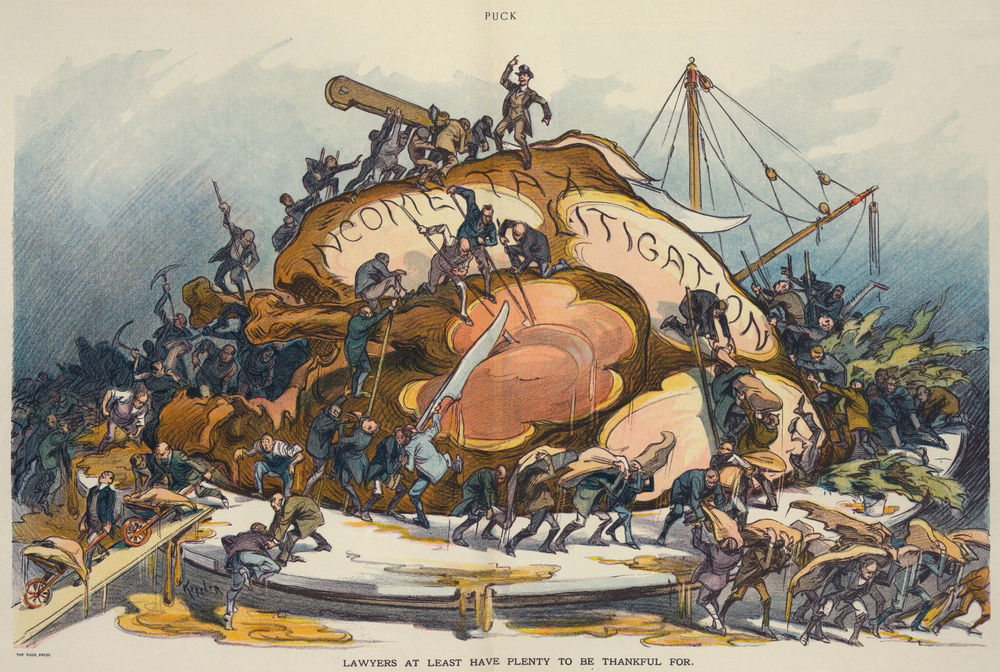

In Federalist #21, Alexander Hamilton expressed his desire to fund the federal government through a consumption tax as opposed to the Progressive income tax, well stated in the Karl Marx Communist Manifesto. Hamilton understood the natural harmony of organic personal consumption of products and services is the reality of choice in good times and bad. Thus as individual consumers within the economic ecosystem of all fifty states are harnessed how much the buy, this activity would also impact statist government bureaucrats ability to promote the growth of government without the means to raise taxes without the wrath of the voter/taxpayer. Effectively limit the size of the federal government without coercion but rather individuals choices by the American people being the great equalizer. He states the following:
It is a signal advantage of taxes on articles of consumption, that they contain in their own nature a security against excess. They prescribe their own limit; which cannot be exceeded without defeating the end proposed, that is, an extension of the revenue. When applied to this object, the saying is as just as it is witty, that, “in political arithmetic, two and two do not always make four.” If duties are too high, they lessen the consumption; the collection is eluded; and the product to the treasury is not so great as when they are confined within proper and moderate bounds. This forms a complete barrier against any material oppression of the citizens by taxes of this class, and is itself a natural limitation of the power of imposing them.
INVOICE TAXES
We TheFiscals, contend that a person's salary or wage is private property the moment his/her precious time and labor, skill and craft, health and well-being are exchange for compensation. The sweat off your brow while laboring in farm fields, construction sites, refineries, coal mines, stores, offices, and factories is not replaceable in time and place. It no longer has value, because a moment and exhausted time cannot be returned to a laborer. Therefore it cannot be taxed. Unlike other assets: stocks, bonds, that have income appreciation potential due to extemporaneous factors such as community property described as Interstate highways, maritime ports, secured navigational shipping lanes international waters and general peace and welfare of the United States to conduct business enterprise freely, can be taxed accordingly.
Understanding this different taxing authority it is incumbent on the American People to advocate for National Invoice Taxes. These different taxes are to be designated for the funding of specific Federal and State Government Departments based on the tangible product or service contained therein.
The various Federal Invoice Taxes TheFiscals propose: Pallet tax, Copy Cat Tax, Raw Material Tax, and Invoice tax can only be increased by open floor debate on the Floor of US House of Representatives. The President of The United States by written invitation to Congress may initiate the debate to call for a vote by a simple majority of both Houses of Congress to lower any particular invoice tax separately as a measure to stimulate the economy from time to time. A 2/3 supermajority vote of the House and Senate must be met, to approve the increases in any of invoice taxes.
The purpose of the exercise is to announce to the Public what branch of Government is initiating the increase in Taxes. The American People can decide at the ballot box which is to be held accountable on Election Day. The Constitutional Authority remains solely in the House of Representatives per the US Constitution. By giving the exclusive power to the Executive Branch to start the debate in his or her formal request, the President has 'skin in the game' politically. The President and Congress will be held to a higher standard when the US Economy grows or recesses as a result of their tax policies.
This new taxing dynamic will strike a natural balance against the Federal Reserve's Board Prime Rate decisions and the Minimum Reserve Balance Requirements to all Banks. The effect of these actions will be more noticeable to the General Public.
THE FAIRTAX is just too Damn High!
On the other side of the consumption tax argument, is the consumption tax alternative as proposed by FairTax.org, The "one size fits all' tax is a much higher tax rate at 23% that the invoice taxes TheFiscals propose on all purchases. The Fair tax is tough to sell politically. Such a high tax on a broad spectrum of goods and services is too broad. It does not create a hierarchy of taxes for the Micro-Economies in the overall US Economy. Some industries are adversely impacted directly, and in a manner that results in uncompetitive values of scale. Such a cocktail will undermine whole sectors of the US Economy and thus debilitate the effect of employing the American people.
This FairTax proposal is likely to be abused by Statist Politicians and may require keeping the IRS in place for collection purposes. The low wage earner who is presently unemployed or without the modern technological tools to compete in the labor market will become destitute under a FairTax.
WHY is the FLAT TAX such Popular alternative?
After 30 years of political banter, the reason why the Flat Tax proposal is more plausible propaganda for both mainstream political parties in America is that liberals and statists alike agree that the Flat tax keeps and requires the Internal Revenue Service to remain in place as an enforcement agency that keeps politicians in power and fully funded salaries. The only manner to eliminate the IRS and to reduce the need for a Federal Balanced Budget Amendment to the US Constitution that would subjugate citizens further under the threat of absurd tax increases mandated by such amendment a hybrid consumption tax plan on all economic activity is warranted. The Following are what TheFiscals call, the Invoice Taxes.